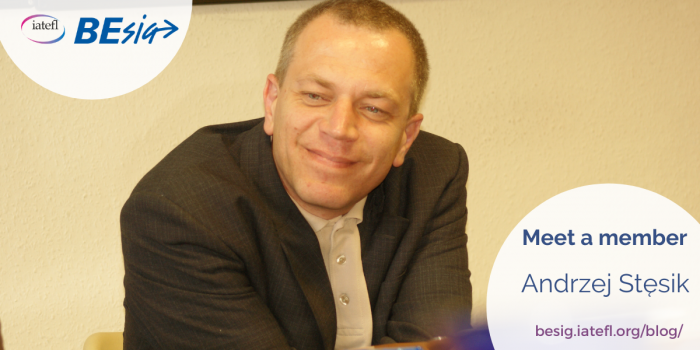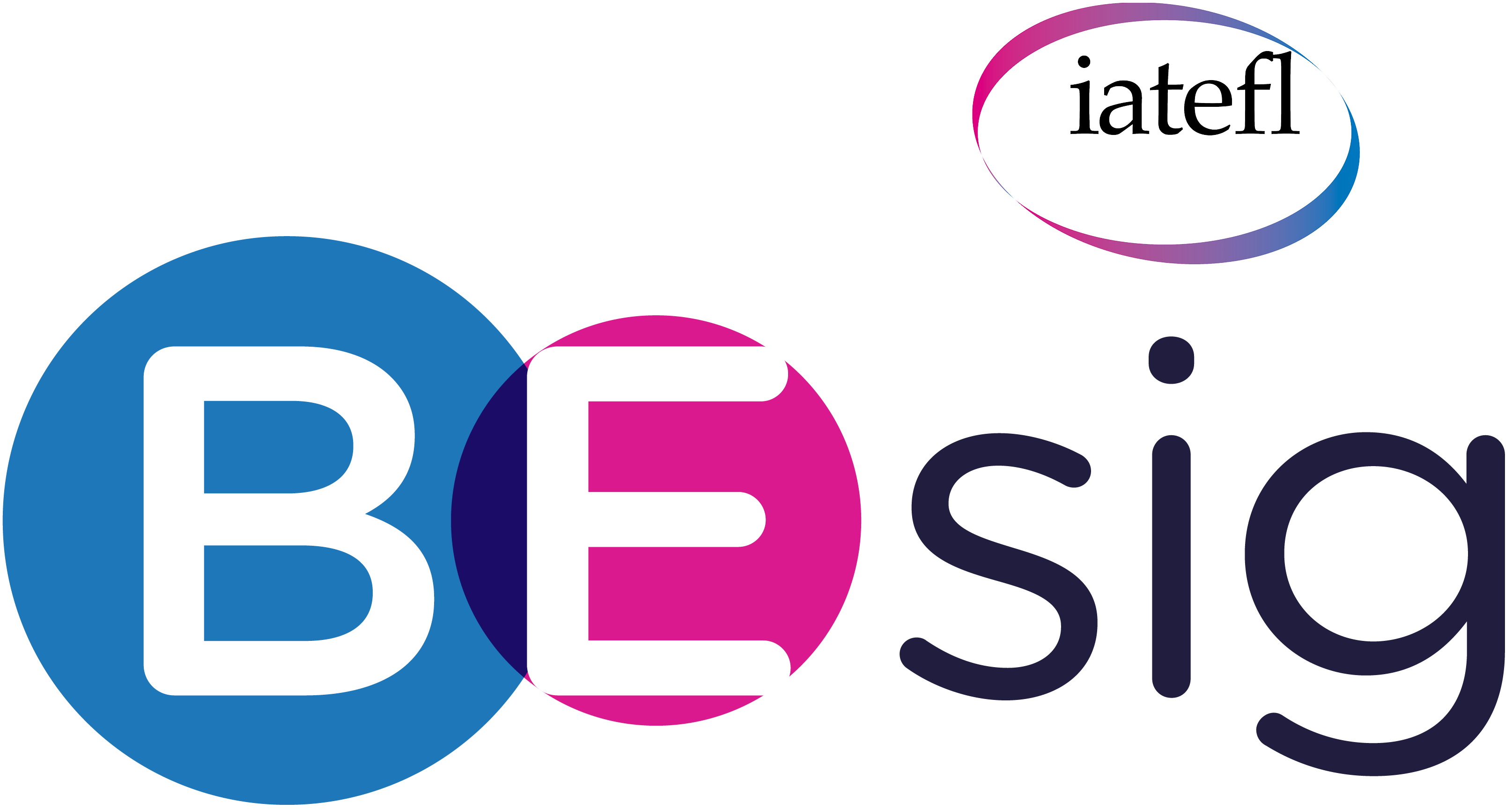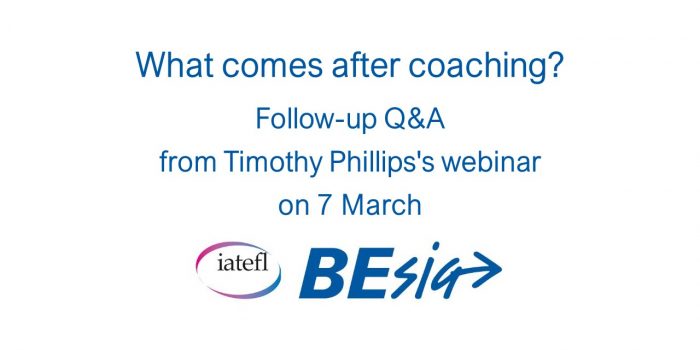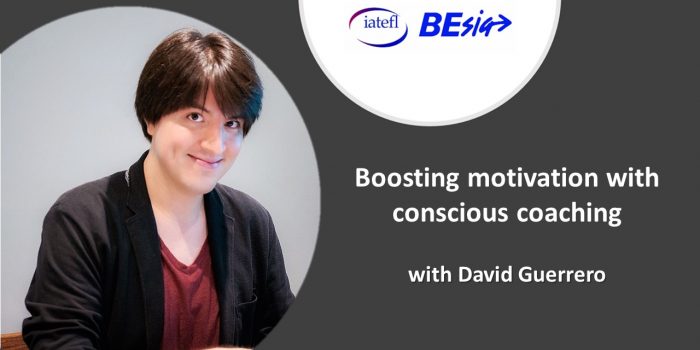
Andrzej Stęsik
Welcome back to another interview with another IATEFL BESIG member. This week, we aren’t just bringing you a member but also a former IATEFL BESIG volunteer. Many of you already know Andrzej from his time on the committee, and I hope this interview gives you more insights into Andrzej’s career, teaching philosophy and volunteering memories.
Bio: Andrzej Stęsik has been involved in ELT for over 30 years as a teacher, trainer, consultant and manager. He has been an IATEFL BESIG member since the mid-1990s. Together with his wife, Ania, he runs INTERSECTION, a professional training center in Poznań, Poland.
You were on the IATEFL BESIG committee for 9 years! Can you tell us about the roles you had, why you decided to volunteer and about some of the highlights?
My motivation behind the decision to volunteer was simple: I wanted to contribute to the profession, and since IATEFL BESIG had been my “professional family” for years, joining the Committee seemed the best option. I was elected as Events Coordinator and I was responsible for matters to do with our conference programs, so my tasks were to put together conference schedules and to contact speakers. In my last three years, I took on the role of Administration and Development Coordinator.
As for the highlights, I can clearly remember the satisfaction I felt at each of the many IATEFL BESIG Conferences I co-organized. Months of preparation, solving the puzzle of how to map out the speakers and their presentations in the conference schedule, and then being able to actually see the conference unfold until it successfully came to an end. Priceless!
How has IATEFL BESIG changed over the years and how do you hope it will develop on the future?
Since the time I joined, IATEFL BESIG has become fully professional in its activities. In the business English teaching world, IATEFL BESIG offers some of the best professional development opportunities for the teachers and trainers from all over the world. Our face-to-face as well as online events, our website with its ‘members-only’ area, our ability to link and develop – all this cannot be overestimated.
In the future, I see even more of our activities happening online. In a way, the pandemic has accelerated this trend, and in some time we are going to see a mixture of face-to-face and online events, with the latter probably dominating the IATEFL BESIG landscape. Sign of the times!
What advice would you give a business English teacher looking for a new challenge?
Be open to new ideas and be prepared to question the ways you’ve done things so far. We all naturally tend to like staying in our comfort zone. But if you want to take on a new challenge, you have to be mentally ready to step out of this zone and try out new things, new ways, new approaches. Without this kind of attitude, it’s just a matter of time before we get stuck in a rut. Don’t they say that a rolling stone gathers no moss?
Earlier this year (2021), you took part in a panel discussion for IATEFL BESIG’s monthly webinar series. What was your topic and what were your main takeaways?
My topic was this: Should BE trainers who have enough experience and expertise to be management trainers raise their professional profile and charge higher fees?
Most people answered this question affirmatively, especially ”if you’re booked solid and no one ever says ‘no’ to your rate”, or simply ”if you are fully booked”. Though, some insisted that ” (…) it’s the market that dictates the price range”, and so you can only charge what the market will bear. However, I personally subscribe to the following opinion expressed in the discussion: ”I am not interested to discover what the market wants because the market rarely knows what it wants. The top brands like Apple tell the market what it wants. Not vice versa. (…) I believe we can do the same.”
What are some important steps to take when starting a 1-1 class?
First, we need to check the learner’s current level by administering a good placement test, which will tell us how good their grammar and vocabulary are. This needs to be followed by an oral interview to check the learner’s speaking skills: how fluent are they, how well can they use the linguistic resources they have, how confident are they when they speak? It’s also a good idea to ask the learner to fill out a needs analysis questionnaire where they have to specify what their learning needs are and to prioritize their learning goals. In business English teaching, the needs analysis is usually considered a must, but I use a general English version of it with my general English learners as well. In short, the more information we collect on the learner’s English and communicative needs, the better.
You are known to stand up for your beliefs. Do you think we as teachers have a social/moral/political responsibility to challenge our students’ beliefs?
Indeed, I do stand up for my beliefs. However, as teachers we need to be very careful of how we react to our students’ views, which will often be different from ours. While I believe we become more credible to students if we tell them openly where we stand, challenging their beliefs doesn’t seem to be part of our role as teachers. I’m always prepared to listen to my students and give them space to express themselves freely. We should respect our students and help them improve their communication skills, but not try to change them as a person. In the spirit of true, constructive communication, we can always agree to disagree, can’t we?
What are your greatest professional and personal achievement?
Hmm, I’m sure they haven’t happened yet 🙂
Questions by Mandy Welfare
Editing by Christopher Chandler
28th June 2021
MEET A MEMBER is available to IATEFL BESIG members and non-members alike but only features our current members. Another reason to join us and “BE with BESIG.”



